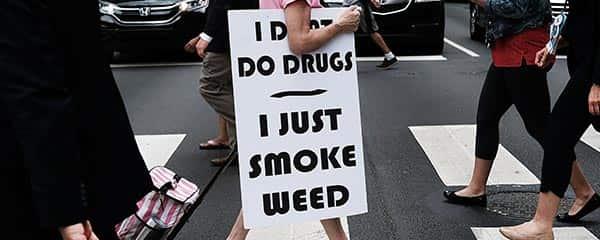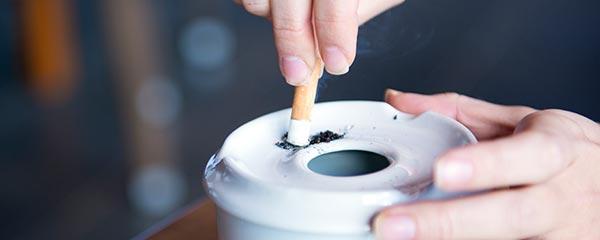Story Highlights
- 52% say U.S. losing ground on illegal drug problem; 24% see progress
- Prior worst reading was 46% losing ground, 31% making progress in 1996
- 74% say drug situation very serious in U.S.; record is 83% in 2000
WASHINGTON, D.C. -- Americans are more negative about U.S. progress in dealing with the problem of illegal drugs than at any prior point in ║┌┴¤═°’s trend, which dates back to 1972. For the first time, a majority of U.S. adults, 52%, say the U.S. has lost ground in coping with the illegal drug problem, while a record-low 24% say it has made progress. Another 23% believe it has stood still.
Drug overdose deaths in the U.S. have risen sharply in recent years, with much of the increase due to synthetic opioids like fentanyl. But overdoses linked to other types of drugs, including cocaine and methamphetamines, have also grown since 2019.
║┌┴¤═° has updated its trend on progress in addressing the illegal drug problem periodically since the mid-1990s, after some initial measurements in the 1970s showed mixed views on the question.
The latest results, from ║┌┴¤═°’s Oct. 2-23 Crime survey, mark a sharp reversal from the prior reading in 2019. At that time, more Americans were optimistic that progress was being made (41%) than believed the U.S. was losing ground (30%) in the effort. For most other recent readings, Americans were divided as to whether things were improving or getting worse.
The public was most optimistic about the nation’s coping with illegal drugs in 1999 and 2000, when an average of 47% believed the U.S. was making progress on the issue.
Republicans Especially Likely to See the U.S. Going Backward
Republicans are extremely negative about U.S. progress on illegal drugs, with 12% believing the U.S. is making progress and 75% losing ground. Independents are also decidedly pessimistic, with 22% believing progress is being made and 52% thinking the situation is getting worse.
In contrast, more Democrats think the situation is improving (40%) than worsening (27%). These party differences underscore the importance of the match between a person’s partisanship and the incumbent president's party in evaluating the drug situation.
Still, partisanship is not the only factor in worsening evaluations today, as Democrats are less positive about U.S. progress now under Joe Biden than Republicans were under Donald Trump in 2019, and Republicans are more negative now than Democrats were four years ago. Independents are also more pessimistic than they were then.
Republicans’ assessments are worse today than in 1996, the previous low, recorded during Bill Clinton’s administration. That year, 16% of Republicans thought the U.S. was making progress against illegal drugs and 62% believed it was losing ground. Independents were also less pessimistic in 1996 than they are today, with 30% saying the U.S. was making progress and 43% losing ground. Like now, Democrats were more positive (42%) than negative (36%) with a Democratic president in the White House.
Three-Quarters in U.S. Describe Drug Problem as Extremely or Very Serious
In addition to asking Americans to gauge U.S. progress against illegal drugs, ║┌┴¤═° asked them to evaluate the seriousness of the drug problem today, both nationally and in their local area.
Currently, 74% of U.S. adults describe the drug problem in the nation as either extremely or very serious, up from 64% the last time the question was asked in 2021 but similar to the 2019 reading of 73%. The record high of 83% was measured in 2000, the first year the question was asked.
Americans are much less likely to see the drug problem in their local area as serious, with 35% saying it is extremely (19%) or very (16%) serious. The current combined “extremely/very serious” figure essentially ties with the 34% from 2000 as the highest in the trend, although the percentages have ranged narrowly between 29% and 35% over the years.
While the 74% describing the national drug problem as extremely or very serious is not the high point in ║┌┴¤═°’s trend, the 45% who currently say the problem is extremely serious is the highest, by two percentage points, over the 43% reading from 2000. Those are the only surveys to date in which more than 40% said the drug problem was extremely serious.
All Party Groups See National Drug Problem as Serious
Majorities of all party groups say the U.S. illegal drug problem is serious, including 86% of Republicans, 74% of independents and 63% of Democrats. Republicans (62%) are twice as likely as Democrats (31%) to view the problem as extremely serious.
Republicans and independents rate the situation in their local area similarly, with 40% of Republicans and 37% of independents saying the local drug problem is extremely or very serious. Democrats, at 27%, are less inclined to believe this.
The 62% of Republicans who consider the national drug situation to be extremely serious is the highest ║┌┴¤═° has measured for any party group to date. The prior high was 49% for Republicans in 2021.
Bottom Line
Amid news of an alarming spike in the number of U.S. adults succumbing to overdoses of opioids and other dangerous drugs, Americans generally see little progress in addressing the illegal drug problem in the nation. The public has never been more pessimistic than they are today, at least in the years ║┌┴¤═° has collected data on the matter. Greater concern about U.S. progress could lead to drugs being a more significant campaign issue in next year’s presidential election than it has been in recent elections, which would put more pressure on candidates to devise plans for addressing the problem.
To stay up to date with the latest ║┌┴¤═° ║┌┴¤═° insights and updates, .
Learn more about how the works.
View complete question responses and trends (PDF download).




